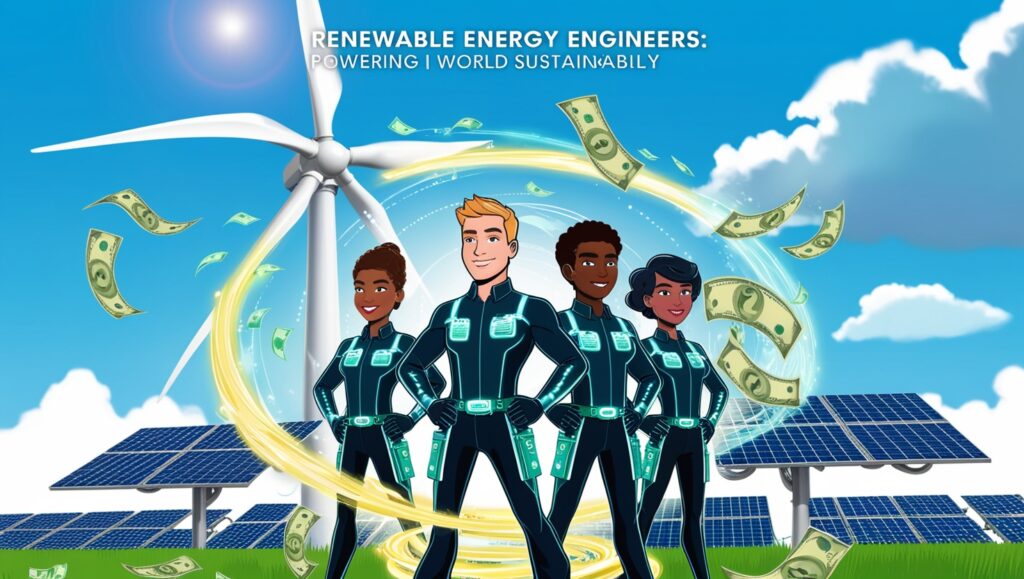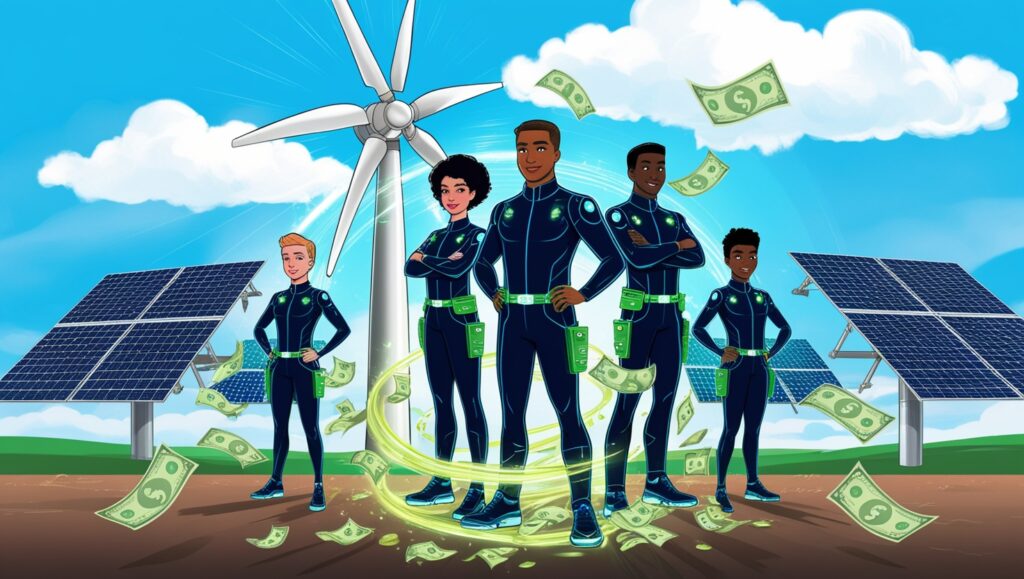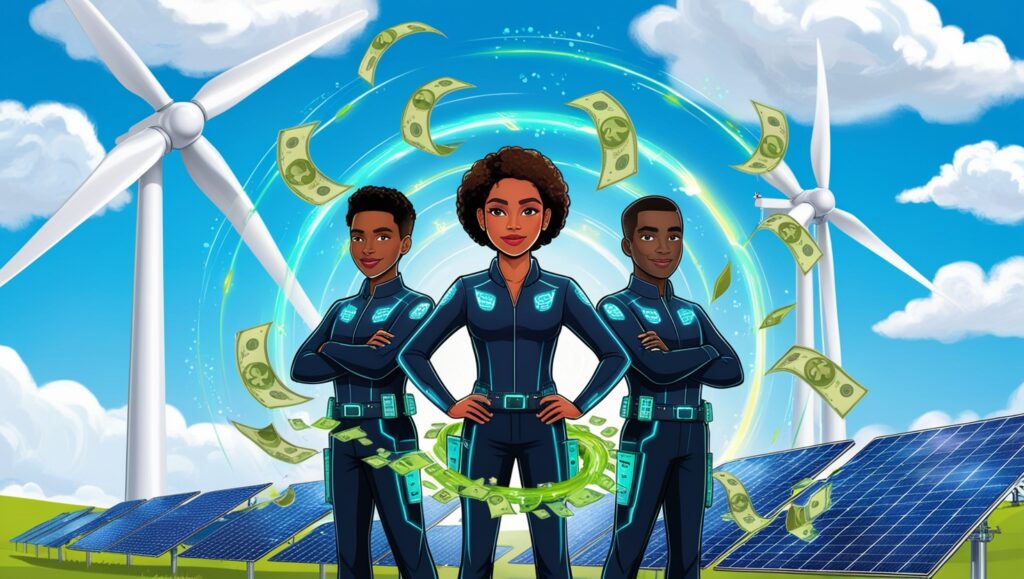Renewable Energy Engineers: Powering the World Sustainably

In the face of climate change and dwindling fossil fuel reserves, renewable energy engineers are at the forefront of designing solutions to power the world sustainably. These professionals are not just engineers but visionaries, tackling one of humanity’s most pressing challenges—the transition to clean and renewable energy sources. This article delves into the critical role of renewable energy engineers, their responsibilities, and the future of this transformative field.
The Need for Renewable Energy Engineers
Global energy consumption continues to rise, and traditional energy sources like coal, oil, and natural gas contribute significantly to greenhouse gas emissions. Renewable energy engineers play a crucial role in mitigating these impacts by developing and improving technologies that harness energy from renewable sources such as the sun, wind, and water.
Key Drivers for the Role:
- Climate Change Mitigation: Reducing carbon emissions to combat global warming.
- Energy Security: Diversifying energy sources to reduce dependence on finite resources.
- Technological Advancements: Innovations making renewable energy more efficient and cost-effective.
- Government Policies: Incentives and regulations promoting clean energy adoption.
What Do Renewable Energy Engineers Do?
Renewable energy engineers design, develop, and implement systems that generate energy sustainably. Their work spans various renewable technologies and often involves collaboration with environmental scientists, policymakers, and other engineers.
Core Responsibilities:
- System Design: Developing solar panels, wind turbines, hydroelectric systems, and bioenergy plants.
- Performance Optimization: Enhancing the efficiency and reliability of renewable energy systems.
- Feasibility Studies: Assessing sites and resources to determine the best renewable energy solutions.
- Project Management: Overseeing the installation and maintenance of renewable energy systems.
- Research and Development: Innovating new materials and technologies to advance the field.

Types of Renewable Energy Technologies
Renewable energy engineers work across several technologies, each with its unique challenges and opportunities:
- Solar Power:
- Designing photovoltaic cells and large-scale solar farms.
- Developing battery storage solutions for energy consistency.
- Wind Energy:
- Engineering onshore and offshore wind turbines.
- Addressing challenges like turbine placement and aerodynamics.
- Hydropower:
- Creating systems for harnessing energy from rivers and tides.
- Developing eco-friendly designs to minimize environmental impact.
- Geothermal Energy:
- Designing systems to capture and utilize heat from beneath the Earth’s surface.
- Exploring technologies for enhanced geothermal systems.
- Bioenergy:
- Converting organic materials into usable energy.
- Innovating processes for biofuels and waste-to-energy systems.
Skills and Qualifications
To excel as a renewable energy engineer, individuals need a combination of technical knowledge, problem-solving skills, and a commitment to sustainability.
Essential Skills:
- Engineering Expertise: Proficiency in mechanical, electrical, or environmental engineering.
- Data Analysis: Using data to improve system performance and efficiency.
- Project Management: Coordinating multidisciplinary teams and meeting deadlines.
- Sustainability Knowledge: Understanding environmental impacts and regulations.
- Innovation: Creative thinking to develop cutting-edge solutions.
Educational Path:
- Bachelor’s Degree: Typically in engineering disciplines such as mechanical, electrical, or environmental engineering.
- Master’s or PhD: Specialized programs focusing on renewable energy technologies.
- Certifications: Professional certifications like LEED or those offered by the Association of Energy Engineers (AEE).
Challenges Facing Renewable Energy Engineers
While the field offers immense opportunities, it also presents challenges that professionals must navigate:
- Intermittency of Energy Sources: Developing solutions for energy storage and grid integration.
- High Initial Costs: Balancing innovation with affordability.
- Environmental Concerns: Ensuring renewable projects have minimal ecological impact.
- Policy Uncertainty: Navigating fluctuating government incentives and regulations.
The Future of Renewable Energy Engineering
The demand for renewable energy engineers is expected to grow exponentially as countries and corporations commit to ambitious sustainability goals. Emerging trends include:
- Smart Grids: Integrating renewable energy with advanced grid technologies for efficient energy distribution.
- Energy Storage: Developing innovative storage solutions like advanced batteries and hydrogen fuel cells.
- Decentralized Systems: Empowering communities with local renewable energy systems.
- Artificial Intelligence: Leveraging AI for predictive maintenance and performance optimization.

Conclusion
Renewable energy engineers are more than just professionals—they are pioneers leading the charge towards a sustainable future. Their contributions not only mitigate climate change but also ensure a reliable and equitable energy supply for generations to come. As the world continues to prioritize sustainability, renewable energy engineers will remain indispensable in powering the planet responsibly and efficiently.






